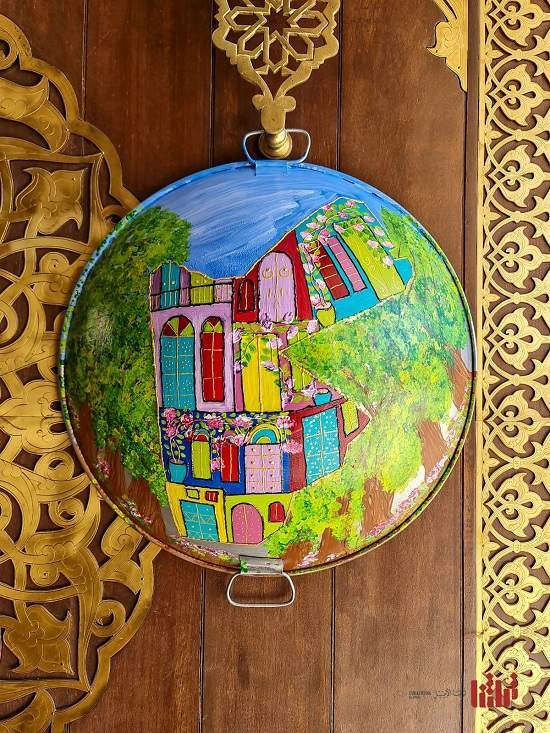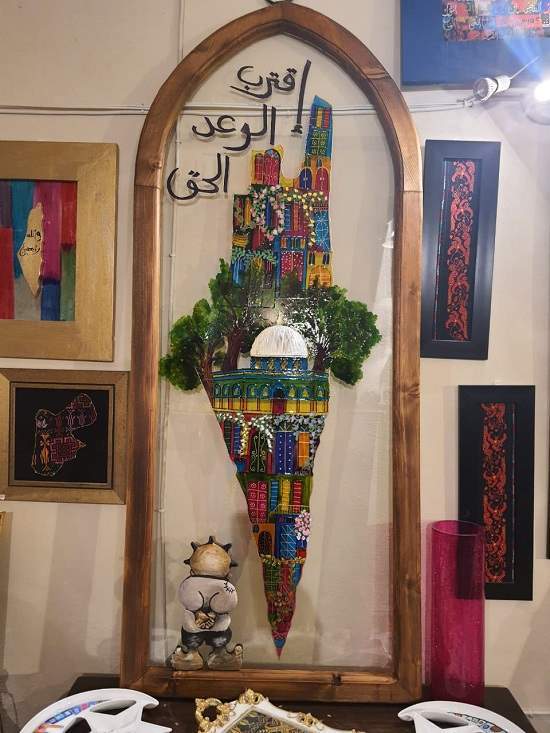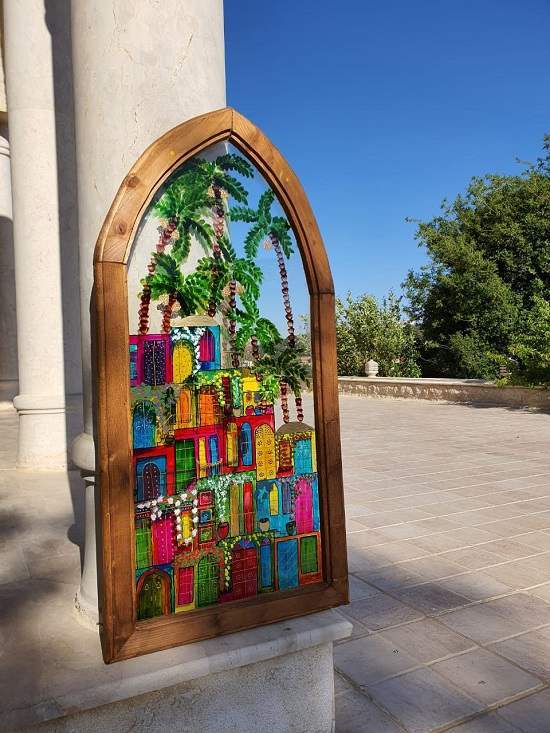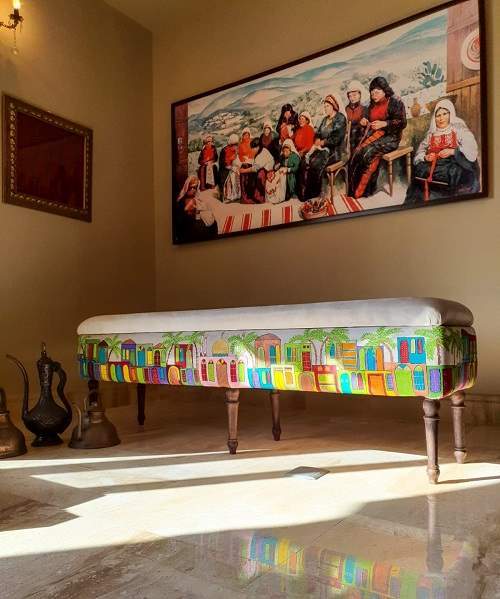AMMAN — Basema Al-Tibi’s son was born with health problems
due to a virus he was infected with while she was pregnant with him. She and
her family decided to move to
Canada for their son to receive the necessary
treatment at the Hospital for Sick Children in Toronto. Exposed to different
cultures in Canada, Tibi felt the need to the make Arab culture, especially
Palestinian, better known in that multicultural country and opened a small art
business in which she found her passion.
اضافة اعلان
Back in Jordan, plenty of free time and pride in her
Palestinian origin and heritage, as well as the events occurring in Palestine, made
her launch her art business “Turathuna”, in 2015. Through art, she says, she is able to lend
support to the Palestinian people.
 Basema Al-Tibi refuses to use modern machines when creating her products because she believes that they would harm the pieces. (Handout from Basema Al-Tibi /Jordan News)
Basema Al-Tibi refuses to use modern machines when creating her products because she believes that they would harm the pieces. (Handout from Basema Al-Tibi /Jordan News)
“I am a political person and my art is affected by the
events occurring in Palestine and other Arab countries, like Lebanon, for
example. I try to use art to reflect our suffering and deprivation of right to
the whole world,” Tibi said in an interview with
Jordan News.
She refuses to use modern machines when creating her products
because she believes that “our heritage has to maintain its values and using
these machines will harm the traditional pieces”. Therefore, all
Turathuna products are hand made to preserve their traditional character and identity. Through
her art, inspired by centuries of Palestinian traditions, she also wants to
belie the claim that Palestine was a land without a people.
 Basema Al-Tibi
refuses to use modern machines when creating her products because she believes
that they would harm the pieces. (Handout from Basema Al-Tibi /Jordan News)
Basema Al-Tibi
refuses to use modern machines when creating her products because she believes
that they would harm the pieces. (Handout from Basema Al-Tibi /Jordan News)
Tibi is responsible for each step in the production
process; she comes up with ideas and designs, and implements them. Her designs are
inspired by her perspective on the situation in Palestine, her desire to spread
awareness about Arab countries and culture, and he wish to offer Palestinians
support, “even in the slightest way”.
“I came up with the idea to integrate our heritage in every
aspect of our lives, in the furniture, clothes, accessories and many more
things, to draw attention to us and to show that art is not limited to one
medium,” she said.
Tibi does not have staff because she wants to maintain
the uniqueness of her artwork and ideas, she said, adding some people could
copy them and hurt her business and the message she wants to deliver.
 Basema Al-Tibi refuses to use modern machines when creating her products because she believes that they would harm the pieces. (Handout from Basema Al-Tibi /Jordan News)
Basema Al-Tibi refuses to use modern machines when creating her products because she believes that they would harm the pieces. (Handout from Basema Al-Tibi /Jordan News)
In her paintings, she draws houses with arches, as most in the
region are, and uses colors to send a message to the international community
that all the agreements reached to keep the Palestinians out of their homeland
will fail and they will return, she said.
She added that she gives viewers room to interpret her
artwork, but that when she explains her political views and the feelings she
invested in her artwork, their perspective may change.
 Basema Al-Tibi refuses to use modern machines when creating her products because she believes that they would harm the pieces. (Handout from Basema Al-Tibi /Jordan News)
Basema Al-Tibi refuses to use modern machines when creating her products because she believes that they would harm the pieces. (Handout from Basema Al-Tibi /Jordan News)
She emphasizes that art is important to spread awareness
about significant issues, since it is one of the most effective tools to
deliver messages, particularly in light of the West’s assumptions about Arab
culture.
The targeted audience of Turathuna is young people, as it
works toward encouraging them to speak about their culture and traditions even
in non-Arabic speaking countries, to feel proud of their origins and to give a
positive picture of their countries.
She advises young people who aspire to open a similar
business to be honest in the feelings they want to express and to believe in
the cause they want to reflect and embrace through their art, which also leads
to creativity.
She had started her business with a three-stage plan in her
mind. The first is the one she is at now.
“The current stage took more time than I expected as I
started in a difficult financial situation and COVID-19
Pandemic made things
harder,“ she said.
The second stage is to launch “Monet Turathuna”, through
which she aims to sell Arab/Palestinian food items, such as olive oil, thyme,
jams and desserts. In the third she hopes to expand her activities by opening
new branches around the world.
Read more Culture and Arts





